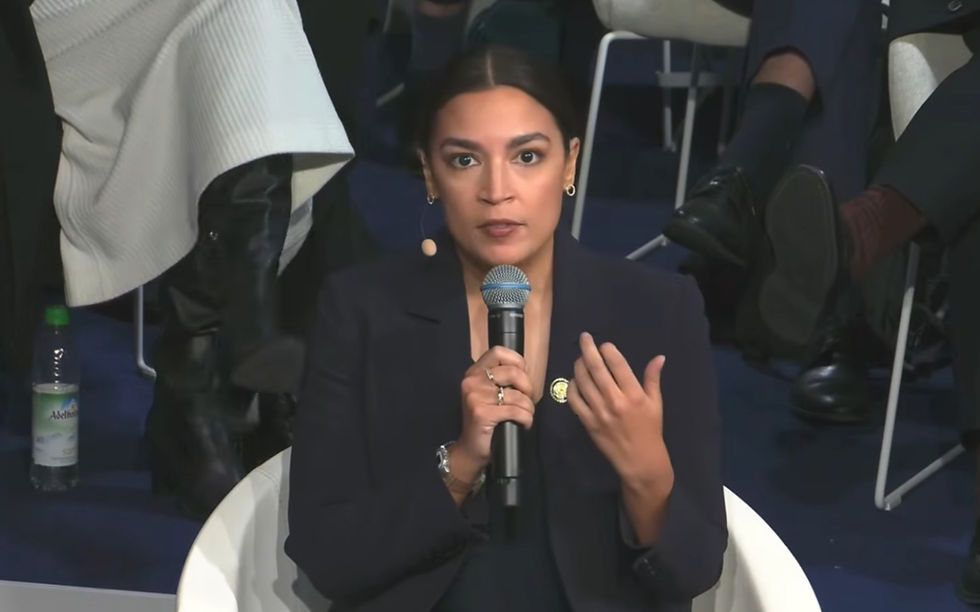The Issues That William Spaniel Can’t Address: Trump Is More Than a Wildcard
- john raymond
- Jul 12, 2025
- 3 min read

William Spaniel’s latest video offers a well-produced, carefully structured overview of NATO’s evolving strategic position in the wake of Russia’s war in Ukraine and China’s growing influence.
He calls attention to the “irony” that Moscow’s military adventurism has reawakened Europe’s defensive posture and compelled a reshuffling of strategic priorities across the Western alliance.
But while Spaniel outlines the surface-level dynamics, his analysis collapses at the critical point: he ignores the most destabilizing force in the alliance—Donald Trump.
Spaniel casually calls Trump a “wildcard,” as though the former and current president were simply eccentric or unpredictable. But that framing obscures what is now plainly visible: Trump is not misaligned with the Western alliance—he is aligned with its adversaries.
The Strategic Split Within the United States
Spaniel treats America as a unified actor, which it no longer is. There are now two distinct strategic centers within the United States:
The national security establishment—the Pentagon, career diplomats, defense analysts—still believes in deterrence, collective security, multilateralism, and long-term competition with China and Russia. This is the America that most allies want to deal with.
Then there is Trump—and the faction loyal to him. Their motives diverge sharply. Trump's preferences reflect the interests of the Kremlin and not even tangentially those of Brussels or Berlin. Trump behaves in ways that consistently benefit Russia: undermining NATO cohesion, threatening to abandon allies, delaying or denying arms shipments, and spreading narratives designed to demoralize the alliance.
So when Spaniel remarks that “the United States needs NATO more than ever,” he’s speaking only about the professional class. The actual head of state, Donald Trump, does not share that need. He does not want NATO to succeed.
This is what Spaniel cannot say. His framework presumes the United States is a coherent actor. But in reality, the American government is now a contested space—split between those defending the alliance and a president actively working to sabotage it.
Europe’s Dilemma: How Do You Read a Captured Ally?
Spaniel correctly observes that Europe is increasing its defense spending and asserting more strategic autonomy. But he fails to explain why.
The shift isn’t just a reaction to Putin’s tanks—it’s a reaction to Trump’s betrayal to both 1) his own country and 2) the alliance. European leaders now have had to reckon with a terrifying possibility: the United States, under Trump, may not defend them—or worse, may side with their enemy.
And the problem is deeper than intent. Trump’s motivations appear opaque because he operates through the logic of asymmetric warfare—disrupting norms, issuing contradictory signals, and reducing every interaction to questions of personal loyalty or transactional gain.
European diplomats still trying to interpret Trump through traditional realist or liberal frameworks are left confused, humiliated, or blindsided.
That is the true geopolitical irony of the moment—not that Russia revived NATO, but that Trump made NATO’s survival contingent on Europe acting as if the U.S. were no longer reliable. Because it is no longer reliable.
What Spaniel Won’t Say
Spaniel is a careful analyst. But in his effort to remain dispassionate, he avoids the one subject that defines this era: strategic trust inside the Western alliance has collapsed—and Donald Trump is the reason why.
This is not a case of Europe needing to “step up.” Europe is stepping up.
The question is whether the United States, under Trump, even wants to be part of the alliance it built. That question cannot be answered by force posture charts or defense spending graphs.
It can only be answered by confronting one simple truth: Trump is not a wildcard. He is an asymmetric actor working to dismantle NATO from within for his master in the Kremlin.
And until analysts like Spaniel stop pretending otherwise, their commentary will continue to sound competent—but be strategically useless.




Comments